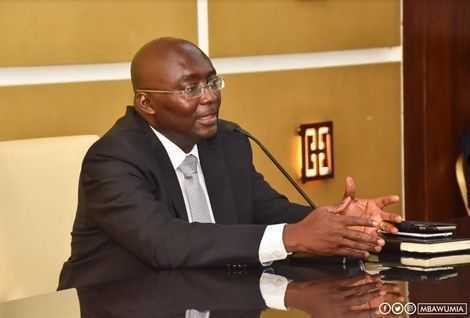Vice President Dr Mahamudu Bawumia on Tuesday gave the assurance that Government was committed to building a stronger partnership with the German business community for mutual benefit
He said, the Nana Akufo-Addo-led Administration had made tremendous efforts to stabilise the macro-economy over the past two years, to attract trade and investment into the country.
He cited, for instance, the economic growth, which moved from 3.7 in 2016 to 8.5 per cent in 2017; the fiscal deficit declined from 9.3 per cent in 2016 to 3.6 in 2018, inflation dropped from 15.4 in 2016 to the current figure of 9.3 per cent, noting that, the stability in the macro-economy also helped the real sector”.
“We know that this stability in the macro-economy is not a one short game, but we have to continue making sure that we maintain it to attract both domestic and foreign investors,” he pointed out.
Vice President Bawumia made the remarks at the opening of the Third German-African Business Summit (GABS) organised by the Sub-Saharan Africa Initiative of German Business (SAFRI) held in Accra.
The GABS is the German’s signature business event in Africa that brings together more than 750 top business and government leaders from Germany and Sub-Saharan Africa every two years to discuss and promote economic relations between Europe’s largest economy and the fastest growing region in the world.
The GABS is chaired by Professor Dr. Heinz-Walter GloBe, the Chairman of the Board of B. Braun Melsungen AG.
The platform provided the opportunity for African business executives and their German counterparts to interact and network to strengthen economic partnerships and explore investment opportunities.
Vice President Bawumia touting some Government’s transformation policies, said it had rolled out digital-based policies to address the nation’s challenges and mentioned the Smart Drivers’ Licence and Registration of Vehicles, National Property Addressing System, e-business and e-passport registration, the on-going National Identification System (Ghana Card), among other innovative programmes, to provide the “soft infrastructure” for both Ghanaians and potential investors to leverage on for smooth business transactions.
He said those “soft infrastructure” would ensure efficient services and make the nation the best business-friendly economy in Africa to attract trade and investments, saying; “we’re building a “soft infrastructure” that will underpin the growth of this economy”.
The Vice President announced that by the second quarter of this year, the delivery of essential medicines with drones to the remote communities would begin.
He said the government was building a stable and resilient economy that could withstand both internal and external shocks and strike the right balance between fiscal consolidation and growth.
He noted that, it had passed the Fiscal Responsibility Act to cap the budget deficit not below five percent and established a Fiscal Council comprising eminent personalities and financial experts to advise government on the implementation of fiscal policies that would inure to the benefit of the economy.
Vice President assured that Ghana would move from the export of raw materials and add value to the agriculture products, citing the “One-District, One Factory” initiative as a case in point to strategically add value to the mineral resources to earn more foreign exchange for the nation.
He said Cabinet had passed an Auto Policy to provide a framework that would regulate the auto-industry to ensure sanity, noting that, the discovery of more oil and gas offshore Cape Three Points would offer good opportunity for the pharmaceutical industry to grow and increase the production of fertilizers.
Vice President Bawumia, who is the Head of the Economic Management Team, said the transformation and modernisation of the economy was aimed at supporting the vision of “Ghana Beyond Aid” because the world now is about data, which would ensure efficient service delivery.
Those initiatives, he said, were in sync with other government programmes to quicken the digitisation of the economy, noting that, the interoperability of the mobile money payment with 34.5 million accounts would improve financial inclusion and bridge the gap between the banked and unbanked population.
“The future belongs to Africa because developments across the world shows that there is increasing attention to Africa because it is a major growth area for the future,” he observed.
Dr Bawumia pointed out that by 2050, Africa would become the most populous continent in the world, therefore, it was critical to utilise Africa’s demographic dividends to its advantage by educating the people and put in place the requisite infrastructure and policies to drive its development agenda.

